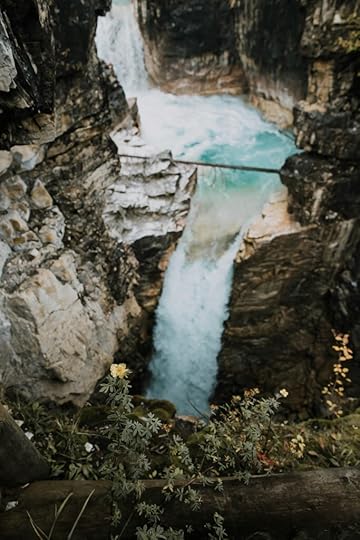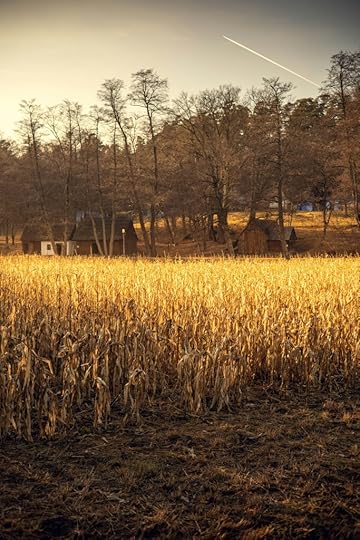Adam Fenner's Blog, page 21
October 13, 2024
Letter to Victoria Farrar
Seth W. Cobb
Sent October 14, 1863
I am thinking of thee in this twilight hour
And I’m lonely weary and sad,
For the day is done and the night has come
And there’s nothing to make me glad.
I am thinking of thee and I almost start
And fancy that though are near
But a sigh will rise to my anguished heart,
Like an echo of wild despair.
I am thinking of thee as I sit here alone,
And ponder on days that’s past
And they’ve flown away – like a summer day
Too bright and too happy to last.
I am thinking of thee and I long to sit
By thy couch of sickness and pain
And smooth thy pillow, and press thy hand
And make thee well again.
I am thinking of thee – Oh! Would I could share
Thy every ill on earth
And love thee so fondly that sorrow and care
Should fly at their earliest birth.
I am thinking of thee, canst thou doubt
Or wonder that I am sad,
For thou art my all, and the tears will fall
For there’s nothing to make me glad.
I am thinking of thee and I long to press
Thy fevered hand in mine
And ask thee if love more true and warm
Has ever been known than mine.
This letter was written to Victoria Farrar, while he was serving as a Lieutenant in Company A of the 18th Virginia Heavy Artillery Battalion. Too bad he married socialite Zoe Cynthian Desloge.
Every day I select a war poem, and respond to it, generally in poetic form. But perhaps not. Each poem grabs at something a little differently. Sometimes the themes blend together, sometimes they contradict. Many poets, were veterans themselves, others not. Their perspectives vary, and the poetry does in response. I’ll continue to do this as long as I keep finding poetry that explores novel or meaningful themes. You know, until the well runs dry.
For thee
For thee, my thoughts waken
Cold mornings, evenings chill
Grass sparkles, frozen dew
Gem stones, I’d give to thee
Hey bro, what rouses your pen
Guides your parchment scratchings
Vigorous candlelight movement
A girl, I’m sure, tell me her name
For thee, the morning sun
Turns ice to diamonds
And melts the frozen ground
My heart warms, to think
Hey bro, her name, do share
No secrets here, poetic powers
Waken slumbering beasts
Women’s hearts rapid beating
For thee, my pulse quickens
Battle hardened heart softens
This long road to you, it seems
A worthy journey, for only you
Hey bro, I’ve seen that line
At least three times, other letters
Other women, shame on you
This game, your game, shame
For thee, these battles fought
The heavy shells, gruesome scenes
These thoughts of you strengthen
Me to return, to your waiting arms
Hey bro, strong move, to invoke
This war, wield it against her
Adversity and lonely weapons
Of love, an unfair fight for sure
For thee, I long for when, when
These letters are behind us
Distant past, our future ahead
Lives entangled, forever undivided
Hey bro, great fun this romance
Musings, a girls heart for play
Strategic battlefield preparation
For a memorable homecoming

Photo by Joanna Kosinska on Unsplash
October 12, 2024
The Illiad (excerpt, Hector’s Son)
Homer
“Yet come it will, the day decreed by fates!
(How my heart trembles while my tongue relates!)
The day when thou, imperial Troy! must bend,
And see thy warriors fall, thy glories end.
And yet no dire presage so wounds my mind,
My mother’s death, the ruin of my kind,
Not Priam’s hoary hairs defiled with gore,
Not all my brothers gasping on the shore;
As thine, Andromache! Thy griefs I dread:
I see thee trembling, weeping, captive led!
In Argive looms our battles to design,
And woes, of which so large a part was thine!
To bear the victor’s hard commands, or bring
The weight of waters from Hyperia’s spring.
There while you groan beneath the load of life,
They cry, ‘Behold the mighty Hector’s wife!’
Some haughty Greek, who lives thy tears to see,
Imbitters all thy woes, by naming me.
The thoughts of glory past, and present shame,
A thousand griefs shall waken at the name!
May I lie cold before that dreadful day,
Press’d with a load of monumental clay!
Thy Hector, wrapt in everlasting sleep,
Shall neither hear thee sigh, nor see thee weep.”
Thus having spoke, the illustrious chief of Troy
Stretch’d his fond arms to clasp the lovely boy.
The babe clung crying to his nurse’s breast,
Scared at the dazzling helm, and nodding crest.
With secret pleasure each fond parent smiled,
And Hector hasted to relieve his child,
The glittering terrors from his brows unbound,
And placed the beaming helmet on the ground;
Then kiss’d the child, and, lifting high in air,
Thus to the gods preferr’d a father’s prayer:
“O thou! whose glory fills the ethereal throne,
And all ye deathless powers! protect my son!
Grant him, like me, to purchase just renown,
To guard the Trojans, to defend the crown,
Against his country’s foes the war to wage,
And rise the Hector of the future age!
So when triumphant from successful toils
Of heroes slain he bears the reeking spoils,
Whole hosts may hail him with deserved acclaim,
And say, ‘This chief transcends his father’s fame:’
While pleased amidst the general shouts of Troy,
His mother’s conscious heart o’erflows with joy.”
This isn’t the kind of scene that would grab a young man, but it would catch a father’s eye. The background is Hector spent the day fighting the greeks, then comes inside. Gives Paris an earful, because his brother deserves it. Then goes to see his wife and son. It first highlights the dichotomy of a warrior, with all his fierceness and that of a father’s tenderness. The second thing I appreciate, is how this poem takes a moment from the action to show the humanity of these characters from thousands of years ago, in a way that still connects today.
Every day I select a war poem, and respond to it, generally in poetic form. But perhaps not. Each poem grabs at something a little differently. Sometimes the themes blend together, sometimes they contradict. Many poets, were veterans themselves, others not. Their perspectives vary, and the poetry does in response. I’ll continue to do this as long as I keep finding poetry that explores novel or meaningful themes. You know, until the well runs dry.
I think about her
I think about her eyes, round and blue sapphires
Deep pools of cold water, paralyzing my steps
Dark gems, reflecting the frozen moonlight
Trusting, like my daughters round hazel eyes
I think about her eyes, two decades later
Does she remember, or know, how I, we, when
Held my cold black rifle to her brother’s windpipe
Put her father on his knees, and her neighbors
I think about how I cracked the frame of her bed
Grabbed her mother by the arms, in her night gown
Flipped the mattress, found no weapons, only
Gathered her family in the living room trembling
I think about your small arms wrapped around me
My neck, innocent childlike, I held her close
Handed her to him, held her the same, legs wrapped
Held my daughter the same way, that same way
I think about how my daughter, won’t see me
That violent visage, camouflaged to obscure
Kevlar woven ceramic plates, my front and back
I serve dinner on ceramic plates, stacked white
I think about how she won’t see me, I won’t let her
My helmet round, eyes behind dark branded M frames
The sharp edges of the magazines on my chest
For her, cotten blended, soft with my heart exposed
I think about the wailing of mothers, wives, children
When we carried husbands and fathers away
Packaged them up, loaded them onto trucks
How thin my front door is, the weak wooden frame
I think about her eyes, her hands, her expression
How trusting her arms have wrapped around my neck
The sound of wood cracking, and ceramic plates
How she saw me like that, and I hope she never does

Photo by Charles Shaffer on Unsplash
October 11, 2024
The Soldier
Rupert Brooke
If I should die, think only this of me:
That there’s some corner of a foreign field
That is for ever England. There shall be
In that rich earth a richer dust concealed;
A dust whom England bore, shaped, made aware,
Gave, once, her flowers to love, her ways to roam;
A body of England’s, breathing English air,
Washed by the rivers, blest by suns of home.
And think, this heart, all evil shed away,
A pulse in the eternal mind, no less
Gives somewhere back the thoughts by England given;
Her sights and sounds; dreams happy as her day;
And laughter, learnt of friends; and gentleness,
In hearts at peace, under an English heaven.
Every day I select a war poem, and respond to it, generally in poetic form. But perhaps not. Each poem grabs at something a little differently. Sometimes the themes blend together, sometimes they contradict. Many poets, were veterans themselves, others not. Their perspectives vary, and the poetry does in response. I’ll continue to do this as long as I keep finding poetry that explores novel or meaningful themes. You know, until the well runs dry.
Bones and history
These bones of mine, or my brothers
Laid to rest, a blessing to foreign soil
Or a worms meal, dark earthen belly
What shovel, or machine torn sod
Friend or foe, were my eyes closed
Body wrapped, blessed, or pushed
A lost thud at the bottom of a hole
Was I alone, dying in a distant land
To be a tear in the cup of an old man
When the farmers plow finds me
Ivory bones in warm summer light
Will he roll his eyes and push on
Summon the police, examination
Too old, archeologies department
Students and professors exhume
Professional respect, story retold
Newspaper article, graduate paper
Basement storage, cardboard box
Marked name unknown, a year
A war, a specimen, and a folder
Textbook annotation, history

Photo by Giammarco Boscaro on Unsplash
October 10, 2024
Wait for me
Konstantin Simonov
Wait for me and I’ll come back!
Wait with all your might!
Wait when dreary yellow rains
Tell you nothing’s right;
Wait when snow is falling fast;
Wait when summer’s hot;
When no one waits for other men
And all the past’s forgot!
Wait when those that wait with you
Are bored and tired and glum,
And when it seems, from far away,
No letters ever come!
Wait for me and I’ll come back!
Wait in patience yet
When they tell you off by heart
That you should forget;
And when my mother and my son
Give up on me at last
And friends sit sadly round the fire
And talk about the past
And drink a bitter glass of wine
In memory of me –
Wait! No rush to drink with them!
Tell them to wait and see!
Wait for me and I’ll come back,
Escaping every fate!
‘Just a lot of luck!’ they’ll say,
Those that didn’t wait.
They will never understand
How, amidst the strife,
By your waiting for me, dear,
You had saved my life!
Only you and I will know
How you got me through!
Simply – you knew how to wait!
No one else but you!
Written by Konstantin for Valentina Serova, as he assumed his duties for war in July 1941. The two were married in 1943, although their marriage did end tragically. The poem is one of the most popular poems ever written in Russia.
Every day I select a war poem, and respond to it, generally in poetic form. But perhaps not. Each poem grabs at something a little differently. Sometimes the themes blend together, sometimes they contradict. Many poets, were veterans themselves, others not. Their perspectives vary, and the poetry does in response. I’ll continue to do this as long as I keep finding poetry that explores novel or meaningful themes. You know, until the well runs dry.
Dog Tags
Wait for me, he whispers
I’ll expect these back
When I return, from…
Over there, I’ll be back
Chain dangles aluminum tag
Black rubber silenced
I’m coming back,
Wait for me, I’ll be fighting
For you, wait for me, us
Wipe your tears, my love
I’ll hold back mine
Wait for me, I’ll return
High school hero, first love
News fed nation under attack
Recruiter pitched perfect
Wait for me, I’m coming home
Young skin’s warmth
Softens cool aluminum tags
Departing kiss, wait for me
Letterman jacket for the jocks
Dog tags for heroes
The real kind, for real wars
Wait for me, I’m coming back
I love you, wait for me
Wait for me, he writes
Around her neck, dog tags
Wrapped reminder hangs
Lover’s request, wait for me
War’s move slow, far away
Until I return, wait for me
Forgotten kiss, aluminum cools
Black rubber dries, cracks
Wait for me, he writes
I’m coming home, I promise
Tangled chain returned
But I came back, he whispers

October 9, 2024
Christmas Bells
Henry Wadsworth Longfellow
I heard the bells on Christmas Day
Their old, familiar carols play,
And wild and sweet
The words repeat
Of peace on earth, good-will to men!
And thought how, as the day had come,
The belfries of all Christendom
Had rolled along
The unbroken song
Of peace on earth, good-will to men!
Till ringing, singing on its way,
The world revolved from night to day,
A voice, a chime,
A chant sublime
Of peace on earth, good-will to men!
Then from each black, accursed mouth
The cannon thundered in the South,
And with the sound
The carols drowned
Of peace on earth, good-will to men!
It was as if an earthquake rent
The hearth-stones of a continent,
And made forlorn
The households born
Of peace on earth, good-will to men!
And in despair I bowed my head;
“There is no peace on earth,” I said;
“For hate is strong,
And mocks the song
Of peace on earth, good-will to men!”
Then pealed the bells more loud and deep:
“God is not dead, nor doth He sleep;
The Wrong shall fail,
The Right prevail,
With peace on earth, good-will to men.”
Every day I select a war poem, and respond to it, generally in poetic form. But perhaps not. Each poem grabs at something a little differently. Sometimes the themes blend together, sometimes they contradict. Many poets, were veterans themselves, others not. Their perspectives vary, and the poetry does in response. I’ll continue to do this as long as I keep finding poetry that explores novel or meaningful themes. You know, until the well runs dry.
White Christmas
A cold wind blew, on Christmas day
We dressed war, in holiday cheer
HMMWV in green, reindeer antlers
A tree beside my rifle, with one card
But I’m dreaming of a white Christmas
The road to Damascus, we watched the clock
An old sniper position, a VBIED next door, but…
Peaceful tonight, not a creature was stirring
Until we heard such a clatter, it’s Santa-Maria
And I’m still dreaming of a white Christmas
These Hindu Kush, tease snowfall, not today
Distant peaks, out of our reach, short range
Icy air chills our bones on another patrol
We shiver on post, layers thick we watch
And I’m dreaming of a white Christmas
It is always bitter cold, this time of year
Slower season, less engagement, both sides
We gather gifts, and so do they, a stockpile
For the big day, cleverly hidden in range
And I’m still dreaming of a white Christmas
On that silent night, all was calm and bright
Moonlight shone, a trick of the eyes
Sand and stone, illusions of snowfall
Burst by holiday mortars, a miss again
And I’m still dreaming of a white Christmas

Photo by Wilfried Santer on Unsplash
October 8, 2024
The Gift of India
Sarojini Naidu
Is there aught you need that my hands withhold,
Rich gifts of raiment or grain or gold?
Lo! I have flung to the East and West
Priceless treasures torn from my breast,
And yielded the sons of my stricken womb
To the drum-beats of duty, the sabres of doom.
Gathered like pearls in their alien graves
Silent they sleep by the Persian waves,
Scattered like shells on Egyptian sands,
They lie with pale brows and brave, broken hands,
They are strewn like blossoms mown down by chance
On the blood-brown meadows of Flanders and France.
Can ye measure the grief of the tears I weep
Or compass the woe of the watch I keep?
Or the pride that thrills thro’ my heart’s despair
And the hope that comforts the anguish of prayer?
And the far sad glorious vision I see
Of the torn red banners of Victory?
When the terror and tumult of hate shall cease
And life be refashioned on anvils of peace,
And your love shall offer memorial thanks
To the comrades who fought in your dauntless ranks,
And you honour the deeds of the deathless ones
Remember the blood of thy martyred sons!
Gandhi called her the “Nightingale of India” in addition to being a skilled poet, she served as the President of the Indian National Congress, preceded by Gandhi himself.
Every day I select a war poem, and respond to it, generally in poetic form. But perhaps not. Each poem grabs at something a little differently. Sometimes the themes blend together, sometimes they contradict. Many poets, were veterans themselves, others not. Their perspectives vary, and the poetry does in response. I’ll continue to do this as long as I keep finding poetry that explores novel or meaningful themes. You know, until the well runs dry.
Hollow exchange
Calcite crystallized, stonemasons quarry
Earthen womb carbonate metamorphosis
Pure protoliths, judged white perfections
Intermingled minerals, marbled beauty
Cold purpose, memorial pathway bound
Etched the names, mother’s offerings
Squalling sacrifices, babbling babes
Trusting faces, helpless cries, open eyes
Gifted youth, umbilical cords snipped
Mother’s warm embrace, loving burden
Unsteady legs wobble, irreverent laughter
Precious time, impermanent offering
Grim receipt, consequences accepted
Gather and ossify, violent formations
Nations’ gratitude, reverent displays
Roll call, children scratched into stone
Monumental inscriptions, memorialized
Morning sun warms stone, cold offerings

Photo by Maddie Collet on Unsplash
October 7, 2024
The Illiad (excerpt, Hector’s aristeia)
Homer
Troy yet found grace before the Olympian sire,
He arm’d their hands, and fill’d their breasts with fire.
The Greeks repulsed, retreat behind their wall,
Or in the trench on heaps confusedly fall.
First of the foe, great Hector march’d along,
With terror clothed, and more than mortal strong.
As the bold hound, that gives the lion chase,
With beating bosom, and with eager pace,
Hangs on his haunch, or fastens on his heels,
Guards as he turns, and circles as he wheels;
Thus oft the Grecians turn’d, but still they flew;
Thus following, Hector still the hindmost slew.
When flying they had pass’d the trench profound,
And many a chief lay gasping on the ground;
Before the ships a desperate stand they made,
And fired the troops, and called the gods to aid.
Fierce on his rattling chariot Hector came:
His eyes like Gorgon shot a sanguine flame
That wither’d all their host: like Mars he stood:
Dire as the monster, dreadful as the god!
The above is a segment from the Illiad by Homer, from Book VIII, and is a part of his aristeia. His moment where he is at his peak as a warrior and hero. I chose Hector, as he is one of my more favorite characters from the poem. I think young men idolize Achilles, but as we age, Hector takes his place as a father and a husband.
Every day I select a war poem, and respond to it, generally in poetic form. But perhaps not. Each poem grabs at something a little differently. Sometimes the themes blend together, sometimes they contradict. Many poets, were veterans themselves, others not. Their perspectives vary, and the poetry does in response. I’ll continue to do this as long as I keep finding poetry that explores novel or meaningful themes. You know, until the well runs dry.
Ambrosia fails
I drank deep from the well of heroes
The bucket low, a distant drum beat
Rising up the circled stone, through
The darkness it resonated in my heart
It will come, a moment, my moment
When the enemy cries, asserts violence
And I rise, respond in kind, greater
In force, I force their force, remorse
When adrenaline yields to ambrosia
A more violent god’s blessing pumps
Diesel in my veins, the sun’s plasma
Burns through, eyes a raging glow
Lift thundering feet, light as air
Fast as the wind, my weapon strikes
True, deadly burst, volcanic eruptions
Bloody, fists ball lighting strikes
The wolves bow to my howling rage
Lion’s pause, to learn lessons in terror
Eagle above, turns from the gory vision
The river yields to wash away my justice
But the soundtrack never played, for me
Time held still, never slowed, cinematic
Effects budget cut before the film began
The old bard, forgot his pen, god’s withheld
Adrenaline was no panacea, for the weight
Of boots, armor, helmet, weapon, ammo
Air burned in my lungs, and I took cover
Beside my brothers, we fought together

Photo by Nancy Stapler on Unsplash
October 6, 2024
The Illiad (excerpt – Priam’s request)
Homer
“Think of thy father, and this face behold!
See him in me, as helpless and as old!
Though not so wretched: there he yields to me,
The first of men in sovereign misery!
Thus forced to kneel, thus grovelling to embrace
The scourge and ruin of my realm and race;
Suppliant my children’s murderer to implore,
And kiss those hands yet reeking with their gore!”
These words soft pity in the chief inspire,
Touch’d with the dear remembrance of his sire.
Then with his hand (as prostrate still he lay)
The old man’s cheek he gently turn’d away.
Now each by turns indulged the gush of woe;
And now the mingled tides together flow:
This low on earth, that gently bending o’er;
A father one, and one a son deplore:
But great Achilles different passions rend,
And now his sire he mourns, and now his friend.
The infectious softness through the heroes ran;
One universal solemn shower began;
They bore as heroes, but they felt as man.
In Book XXIV, after the death of Hector, King Priam of Troy wishes to bury his son. So, he moves into the Greek camp at night to entreat with Achilles, who killed his son. In the back of your mind when, remember that after Achilles killed Hector, he strapped his body to the back of his chariot and dragged his body around the battlefield, shredding it. Priam makes his way to Achilles tent, at great risk, and pleads with him as a father to be allowed to properly bury his son according to custom. The two end up in tears and Achilles releases Hector’s body to Priam. I really couldn’t say it better. “They bore as heroes, but they felt as man.”
Even in bronze age warfare there was an understanding of the shared humanity between enemies.
Every day I select a war poem, and respond to it, generally in poetic form. But perhaps not. Each poem grabs at something a little differently. Sometimes the themes blend together, sometimes they contradict. Many poets, were veterans themselves, others not. Their perspectives vary, and the poetry does in response. I’ll continue to do this as long as I keep finding poetry that explores novel or meaningful themes. You know, until the well runs dry.
Father’s promise
When first my eyes, lay upon my boy
Swaddled and small, a tender tiny thing
Smaller than a meal, a modest stone
But I am not Cronus, to feast upon my son
I held him to my chest, kept him warm
His tiny hands, and swollen eyes wide
I swore a father’s oath of protection
To this babe, his head upon my chest
To raise him strong, brave, honorable
A good and noble man, with courage
Until that day, to be that man, stronger
Than I was, am, could be, for him
These boys, they grow, and the best
Grow greater, more than their fathers
Heroic and feared, a force all his own
His enemies scattered on the battlefield
He will send them home, to their fathers
Swaddled in linen, gray, cold and still
Meals too small for the great titan of war
Never sated, by the gored bodies of sons
But every father makes promises, to their son
Who picks up the sword, tightening his grip
With heroic delusions, of slain enemies, and…
No boy is invincible, few promises unbroken

Photo by charlesdeluvio on Unsplash
October 5, 2024
Chanson de croisade et de femme
Attributed to Guiot de Dijon
I will sing for the sake of my heart,
Which I wish to comfort;
In the face of my great suffering
I wish to neither die nor go mad,
When I see no one return
From that barbarian land
Where he is, the one who calms
My heart whenever I hear his name spoken.
God, when they should “Charge!”
Lord, please help the pilgrim:
I am terrified for him,
For ruthless are the Saracens.
I will suffer in this state
Until I see him come back.
He is on a pilgrimage,
God grant that he return.
Despite my whole family
I do not wish to have grounds
To marry another man;
Anyone I hear suggest it is a fool.
God, when they should “Charge!”
Lord, please help the pilgrim:
I am terrified for him,
For ruthless are the Saracens.
What pains my heart
Is that he is not in this land,
The one for whom I am in anguish;
I have neither pleasure nor mirth.
He is handsome and I am lovely.
Lord God, why have you done this?
When we desire each other,
Why have you parted us?
God, when they should “Charge!”
Lord, please help the pilgrim:
I am terrified for him,
For ruthless are the Saracens.
What gives me hope
Is that I received his homage;
And when the sweet breeze blows
From that sweet land
Where he is, the one that I desire,
Gladly do I turn my face to it;
Then I seem to feel ‘im
Under my gray cloak.
God, when they should “Charge!”
Lord, please help the pilgrim:
I am terrified for him,
For ruthless are the Saracens.
What disappointed me greatly
Was that I was not present to escort him out.
The tunic he had worn
He sent for me to embrace.
At night, when his love spurs me,
I lay it down beside me,
All night, against my naked skin,
To soothe my pain.
God, when they should “Charge!”
Lord, please help the pilgrim:
I am terrified for him,
For ruthless are the Saracens.
Guiot de Dijon was a Burgundian trouvère. Or simply a french troubadour, think traveling minstrel. About fifteen of his songs have survived, several with melodies remaining.
Every day I select a war poem, and respond to it, generally in poetic form. But perhaps not. Each poem grabs at something a little differently. Sometimes the themes blend together, sometimes they contradict. Many poets, were veterans themselves, others not. Their perspectives vary, and the poetry does in response. I’ll continue to do this as long as I keep finding poetry that explores novel or meaningful themes. You know, until the well runs dry.
My heart
My heart longs, stretches deep
Far and away, a distant land it touches
Reaches through the sands
It brushes your hand,
Wipes grit from your fingers
Tastes the sweat from your cheek
Do my tears nourish you?
Keep you cool under the unforgiving sun?
Beware the Saracen, he hates
You, and us, should the moment rise
I fear for you, my heart
Held within your hands
This distance weighs
Heavy upon me, unknown
Danger lurks, stalks, plans
Designs violence against you
Threatens me with loneliness
Consequence and pain, hatred
Without knowledge, caused
What breed of men is this?
Beware the Saracen, he hates
You, and us, should the moment rise
I fear for you, my heart
Held within your hands
My body worships you
Prays for your return, in
Dreams of tender touch
Gentle warmth on cool nights
The breeze replies, sunlit morning
Kiss upon my cheeks excites
Promises your return to me
Your scent, the current carries
Beware the Saracen, he hates
You, and us, should the moment rise
I fear for you, my heart
Held within your hands
Should violence call, cry out
Your name, I carry in my heart
Shield your soul, your body bare
Marks and scars, come back
To me, charge through the danger
Do what must be done, vicious
Is the distance, you must close
Cut through, that path to me
Beware the Saracen, he hates
You, and us, should the moment rise
I fear for you, my heart
Held within your hands
Until that day, your arms wrap
Around my neck, I’ll wear this chain
Black padded tags, your name
I’ll grasp, hold my breath
Balled fist against my breast
Cold comfort, against the distance
Desert sun stings your flesh
A world away from me
Beware the Saracen, he hates
You, and us, should the moment rise
I fear for you, my heart
Held within your hands

Photo by Giovanni Nicolini on Unsplash
October 4, 2024
An Ancient Ballad of Joining the Army
Li Qi
白日登山望烽火,黄昏饮马傍交河。
行人刁斗风沙暗,公主琵琶幽怨多。
野云万里无城郭,雨雪纷纷连大漠。
胡雁哀鸣夜夜飞,胡儿眼泪双双落。
闻道玉门犹被遮,应将性命逐轻车。
年年战骨埋荒外,空见蒲桃入汉家。
During the day, soldiers climb the mountain to observe the beacon tower.
At dusk, they lead horses to the Jiaohe River for water.
In the gloomy sand storm, only the chime of the bronze bells can be heard,
And the bitter music of the lute, as if played by the Han princess forced to marry the Huns.
Under the wild clouds that stretch for tens of thousands of li, there’s no trace of a township;
Heavy snowfall shrouds the vast desert.
Wild geese glide through the night sky crying;
Bringing tears to even the barbarians.
They say there’s no retreat as the Jade Pass is still tightly shut;
One has no choice but to follow the general’s chariot onto the battle field.
Year after year, fallen soldiers are buried in the wilderness,
Just so that grapes from the west can be sent to the Han court.
In the period of relative peace during the Tang dynasty (618 – 907 CE) the poet Li Qi wrote this peace about the Han dynasty which ran from 206 BCE to 220 CE. Although it was an intentionally thinly veiled criticism of his current period, where there continued to be expansion and lighter conflict.
Every day I select a war poem, and respond to it, generally in poetic form. But perhaps not. Each poem grabs at something a little differently. Sometimes the themes blend together, sometimes they contradict. Many poets, were veterans themselves, others not. Their perspectives vary, and the poetry does in response. I’ll continue to do this as long as I keep finding poetry that explores novel or meaningful themes. You know, until the well runs dry.
Home
The old man passes, a sack on his back
Walking home, for dinner with his wife
Henna painted boys, chitter and jab
Running free through the bazaar
The songbird twitters, lover’s call
Nest building, preparation for spring
Our armor is heavy, salted with sweat
Lumbering toward post, four more hours
Winter’s thaw raises river waters
Father and son, an afternoon fishing
Mission briefing only seven clicks, milk run
Light ambush, twelve clicks, return to base
Photos from home, camping in the mountains
Wish you were here, distant smiles, captured
The ‘terp said it was too dangerous, resigned
Caught a ride to Kabul, heading home now
Even the dogs run free, through fresh stalks
Corn planted in rows, to grow tall for harvest
We can go home, later, after fighting through
After the threshed corn dries, on rooftops

Photo by Adrian “Rosco” Stef on Unsplash



